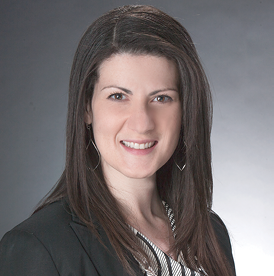APSF Awards 2016 Grant Recipients
The APSF’s mission statement explicitly includes the goal to improve continually the safety of patients during anesthesia care by encouraging and conducting safety research and education. Since 1987, the APSF has funded safety projects totaling over 9 million dollars.
In 2015, the APSF investigator-initiated grant program had 43 letters of intent (LOIs). Members of the APSF Scientific Evaluation Committee reviewed and invited the top eight scoring grants to submit full proposals—six full proposals were submitted for final review and discussion on October 24, 2015 at the ASA Annual Meeting in San Diego, CA. Two proposals were recommended to the APSF Executive Committee for funding and both received unanimous support. This year’s recipients were Jean Wong, MD, from the Department of Anesthesia at the University of Toronto, and Sallie Weaver, PhD, from the Armstrong Institute for Patient Safety and Quality, the Department of Anesthesiology and Critical Care Medicine at Johns Hopkins University School of Medicine. The principal investigators of this year’s APSF grant provided the following description of their proposed work.

Dr. Wong’s Clinical Research submission is entitled “Prevention of Delirium in Elderly with Obstructive Sleep Apnea (PODESA)”
Background: Delirium is one of the most common postoperative complications in elderly patients after major surgery. It is an extremely distressing problem for elderly patients and their families, and increases their risk for other serious complications, including death. The pathophysiology of delirium is poorly understood, but is believed to be a multifactorial process resulting from a combination of predisposing and precipitating factors. Recent studies show that patients with obstructive sleep apnea (OSA)—a sleep disorder characterized by repeated episodes of complete or partial upper airway obstruction—are at a greater risk of developing postoperative delirium. The prevalence of OSA increases with age, yet elderly individuals with this condition often remain undiagnosed. Unrecognized OSA may be a treatable cause of postoperative delirium. However, no studies have investigated whether diagnosing and treating OSA preoperatively reduces the incidence of postoperative delirium.
Aims: The primary objectives of this multicenter, randomized, controlled trial are to determine whether identifying OSA using a portable diagnostic device—and treating OSA with auto-titrating continuous positive airway pressure (CPAP)—will prevent the occurrence of delirium in elderly patients undergoing knee- and hip-replacement surgery. We will also determine whether auto-titrating CPAP treatment of OSA will decrease the incidence of other OSA-related perioperative complications. All patients will be evaluated for the development of postoperative delirium after surgery.
Implications: Delirium is associated with increased morbidity and mortality, and higher healthcare costs. Our study will increase knowledge of the effect of OSA on postoperative delirium, and may reduce the risks for delirium and other OSA-related perioperative complications. The results of our study may be used to design future delirium prevention and management strategies to improve the safety and surgical outcomes of this at-risk population since there are few effective preventative interventions for delirium.
Funding: $149,262 (January 1, 2016 – December 31, 2017). This grant was designated as the APSF/American Society of Anesthesiologists (ASA) President’s Research Award. Dr. Wong is also the recipient of the Ellison C. “Jeep” Pierce, Jr., MD Merit Award, which provides an additional, unrestricted amount of $5,000.

Dr. Weaver’s educational submission is entitled “Development and Evaluation of an Online Improvement Project Implementation Course for Anesthesia Trainees”
Background: Developing anesthesia providers with the skills and experience necessary for implementing and leading patient safety improvement work is crucial for delivering reliably safe care. Patient safety improvement methods are key components of ACGME Systems-Based Practice and Practice-Based Improvement milestones for residents. Education developing the knowledge, skills, and attitudes underpinning successful completion and evaluation of improvement interventions is still emerging as an important component of many residency programs. While semi-structured faculty mentoring is critical, formal training in project development, management, and evaluation stands to strengthen the capacity of residents and other trainees to implement successful safety improvement projects from the ground up.
Aims: In line with APSF’s mission to create young safety scientists and practitioners, this project will develop and evaluate an online training module tailored to anesthesia residents and trainees that will provide instruction and practical tools for planning, implementing, and evaluating a patient safety improvement project. The first phase includes a semi-structured needs analysis to elicit key safety improvement competency areas identified by a national panel of experts and development of the course. Phase two includes implementation and a multilevel evaluation that will examine learner reactions, cognitive and affective learning, transfer, and the quality of resident-led patient safety projects. Results will inform refinements and public dissemination of the online course.
Implications: This work has the potential to improve the safety of patients in the care of anesthesia providers by strengthening resident and trainee competencies in patient safety improvement, project management, and evaluation. Additionally, through partnerships with the APSF, American College of Medical Quality and other partners, this project will result in educational resources available to residency programs and individual trainees seeking to strengthen their knowledge and skills in patient safety improvement.
Funding: $149,944 (January 1, 2016–December 31, 2017). This grant was designated as the APSF/American Society of Anesthesiologists (ASA) Endowed Research Award.
Dr. Howard is Professor of Anesthesiology, Perioperative and Pain Medicine at Stanford University School of Medicine and Chair of the APSF Committee on Scientific Evaluation.


 Issue PDF
Issue PDF